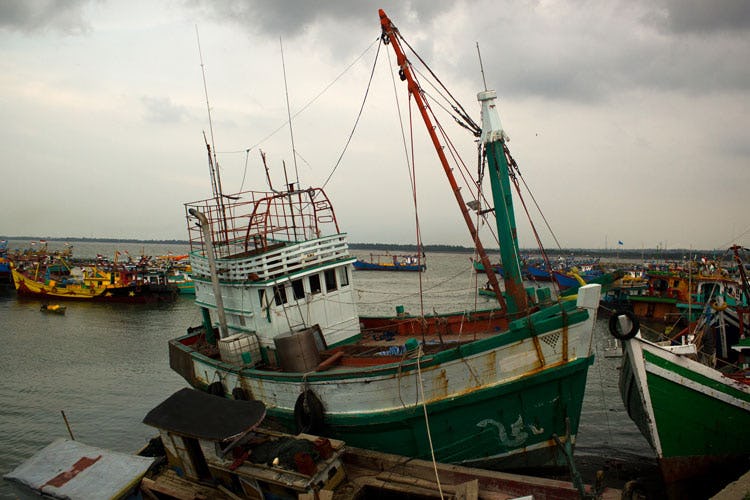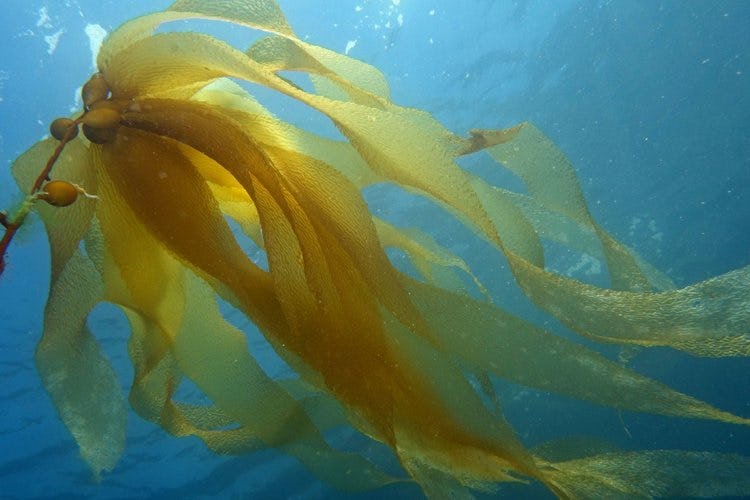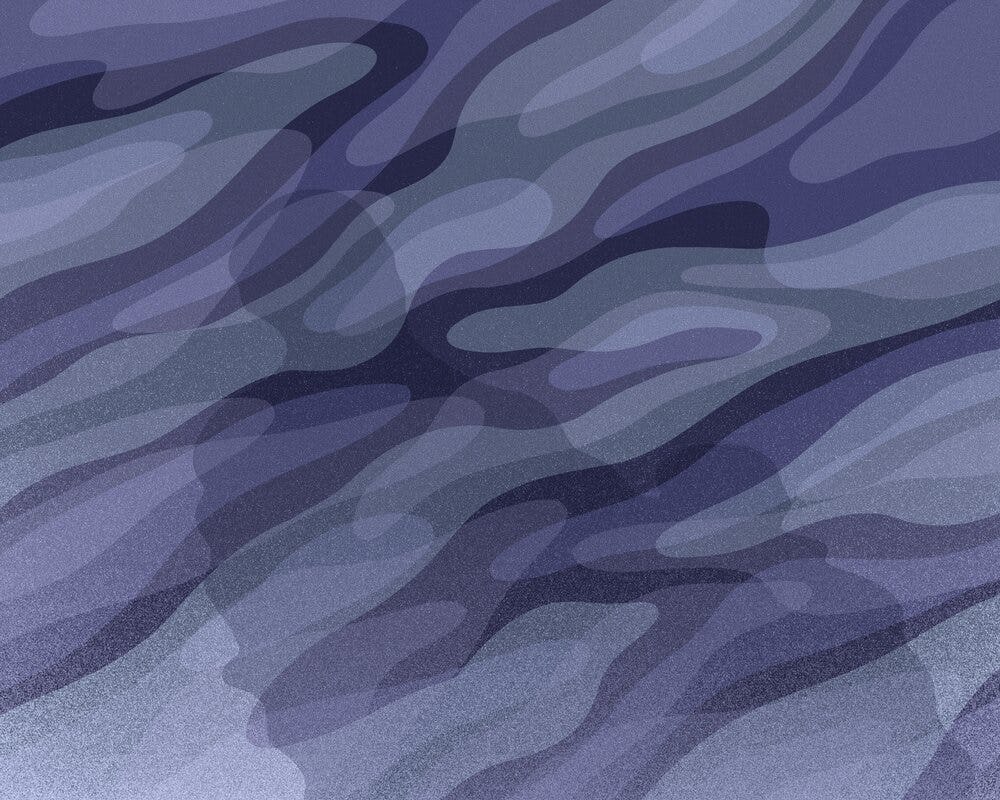The Sea
Tiffany Tsao • 6 May 2022
This week, The Circular sets sail with non-fiction that contemplates the sea’s myriad manifestations: as a dangerous escape route for those fleeing persecution; as a buffer from climate change’s effects; as a source of nourishment and repository of memory; as a path to intercultural knowledge and understanding.
We’ve drawn some of our pieces from larger reservoirs of water-based writing. Kim Cheng Boey’s autobiographical poem ‘The Sea Remembers’ and the audio piece ‘Dawn Finds Us’ are from Portside Review, which publishes writing from all across the Indian Ocean. And Sela Atiola’s essay on the Tongan dish ‘Ota Ika comes to us from Colournary’s stunning second print issue, themed entirely around water.

The Tamarind is Always Sour
Keane Shum, Granta, June 2017
In this journalistic essay from 2017, Keane Shum recounts interviewing Rohingya refugees for the UNHCR. As he pieces together the horrific conditions under which interviewees are transported by human smugglers across the Bay of Bengal and Andaman Sea, he reflects on his Chinese-Indonesian heritage and his family’s own history of crossing oceans in search of refuge.
My team and I interviewed hundreds of Rohingya who made this journey, and their testimonies were remarkably consistent and consistently terrifying. The only more inhumane crossing I have ever heard or read about is the Middle Passage, the part of the slave journey across the Atlantic that killed millions of Africans between the sixteenth and nineteenth centuries. To be clear, the Rohingya were not enslaved on ships – most at least started the journey voluntarily – but the conditions were so brutally coercive that they were arguably all victims of human trafficking.

A Waving Forest
Zowie Douglas-Kinghorn, Island
How often do we think of seaweed’s critical role in the ecosystem? How much do we know about the disappearance of underwater forests? Zowie Douglas-Kinghorn asks us to think about the deforestation that happens offshore.
In the summer leading into 2016 – which would become the equal hottest year ever recorded by NASA – experts estimate around 95% of original kelp forests disappeared from the east coast of Tasmania. Cayne Layton, a researcher at the Institute for Marine and Antarctic Studies (IMAS) and a vocal advocate for wild kelp forests, says, 'If we’d lost 95% of our forest on land, there’d be public outrage, there’d be riots in the street. Unfortunately, it’s under the water and it’s somewhat out of sight, out of mind.'
(Note: This essay is part of Island’s compelling and convicting Australian Nature Writing Project series.)

The Sea Remembers
Kim Cheng Boey, Portside Review, Issue 1
Just when you turn your back on it and give it up for lost, it starts to come back, tides sweeping in from the lost horizon, or maybe it is rising in you, the sea returning with its waves of remembering, its lilting cadences and lapping folds on the mossy, weedy sea-wall, the hum, the chugging of sampans and tongkangs, the stirring sea breeze and bracing salt air, the shifting chords of bronze light, all the missing places, faces and voices, the vanished years come rolling in on the incoming tide, the Marina Barrage disappeared by memory’s reverse sleight of hand, the sea roads open again to archipelagic echoes.
This stirring poem by Kim Cheng Boey about his late father and memory’s tidal pull also appears in Boey’s latest collection, The Singer and Other Poems. It can be read as a companion piece to the titular poem, 'The Singer', written in memory of his mother.

The 'Ota Ika and Memories of My Grandfather and Tonga
Sela Atiola, Colournary, February 2022
Grandfather Mahe passed away before I could meet him and over the years my father would share stories about him. 'You know Mahe Lahi spent hours out at sea, fishing so we could eat,' Dad would explain. 'We didn’t have much, but he always made sure he came home with fish or seafood to eat. Whatever he had, he shared with his sister and their families too.' Like Grandfather Mahe, many families in Tonga relied on a healthy ocean to feed their families.
Sela Atiola writes about how the dish 'Ota Ika keeps her and her family connected to their Tongan history and culture.
Dawn Finds Us
Grey Filastine, Nova Ruth Setyaningtyas & Raka Ibrahim, Portside Review, Issue 5
Arka Kinari is a group that sails around the world hosting music performances and workshops to educate people about climate change. In this audio piece, three of the crew members recount the heartening day and harrowing night that ensued after docking at the coastal village of Lamakera in Indonesia.
It’s a day that dawned in startling natural beauty, a morning of life aboard a working sailing ship, an afternoon treated to a heroes’ welcome, before devolving into an evening lynch mob capped by a dangerous midnight escape.
(Note on access: this is an audio piece.)
We’re extremely pleased to announce that Fiona Murphy – poet, essayist and author of The Shape of Sound – will be guest-editing our next issue! Spread the word and subscribe to our newsletter if you haven’t already. You won’t want to miss this one. (As if you'd want to miss any.)